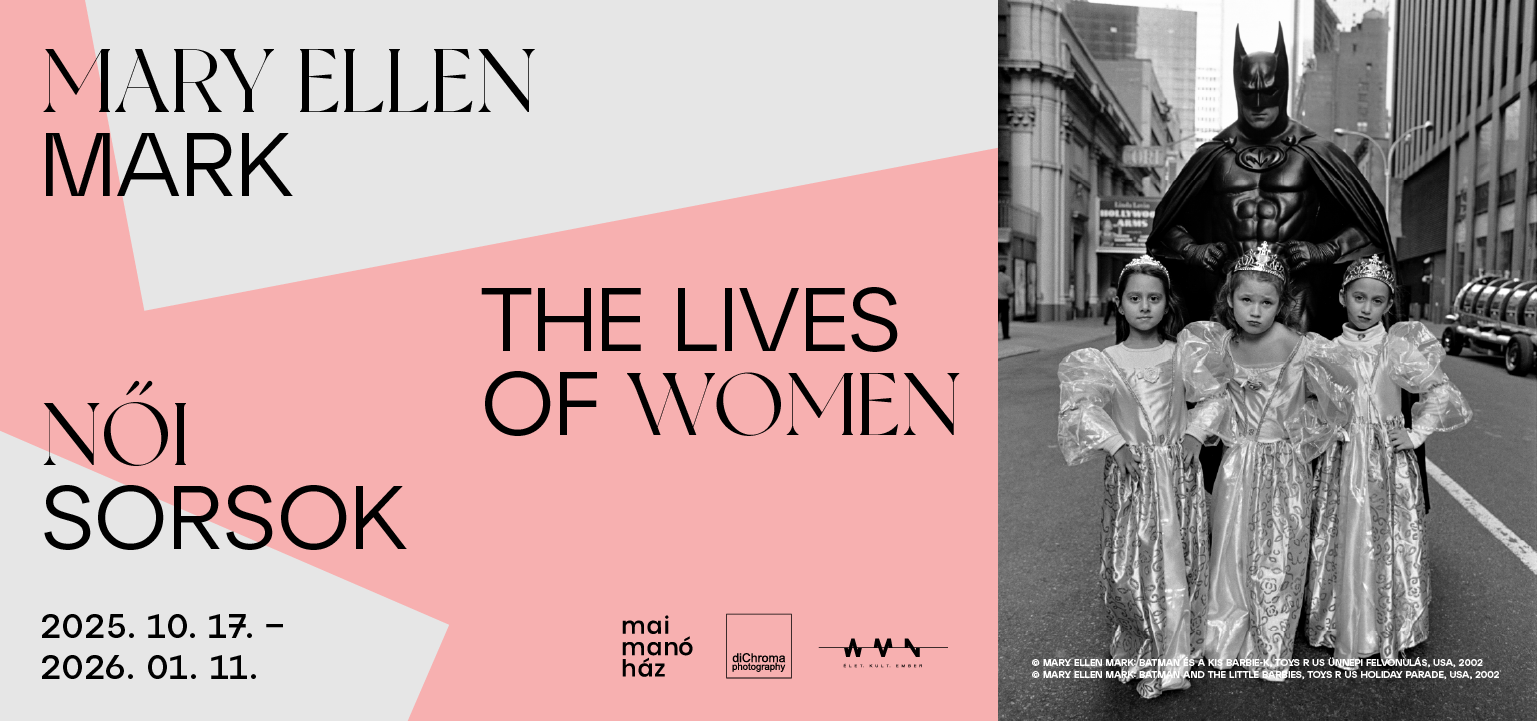

The exhibition is open to the public:
17 October 2025 – 11 January 2026
Tuesday – Sunday from 12 to 7 pm
Closed on Mondays and public holidays
Curator: Anne Morin
Co-curator: Péter Baki
Opening: 16 October 2025, Thursday, 6 pm
The exhibition will be opened by Judit M. Horváth, Balogh Rudolf Prize-winning photographer.

Mary Ellen Mark (1940–2015) was a pivotal American photojournalist of the second half of the twentieth century. Her professional journey began in 1964 when she graduated with a degree in photojournalism from the Annenberg School for Communication at the University of Pennsylvania. Over the next fifty years, she dedicated herself to documentary photography. Mark’s distinctive style was characterized by her innovative spirit, and her choice of subjects centered on the portrayal of complex human situations. Her exploration of individual characters and the lives of marginalized communities was framed above all through the lens of women’s experience.
Mark’s work preceded the increased social attention to women’s abuse and suffering later amplified by the #MeToo movement and others. Across many projects, she explored in detail the lives of women enduring difficult, painful, and at times nearly unbearable conditions. As a passionate observer, she dedicated her career to employing photography and film as tools to reveal the lives of others, preserve their humanity, and share their stories with a wider audience.
During the 1970s, she created an intimate black-and-white series on the female patients of Ward 81 at the Oregon State Hospital, the institution’s only locked women’s ward – later published as the book Ward 81. In 1981, she released Falkland Road: Prostitutes of Bombay, a groundbreaking work of color photography that documented the lives of sex workers in Mumbai’s red-light district. A few years later, her series on Mother Teresa’s Missionaries of Charity in Calcutta was published as a book, offering the public a portrait of the strength and commitment of this symbol of compassion.
In 1983, she met Erin Blackwell, better known as Tiny, a young runaway whom she began to photograph along with her community of street children. This material was incorporated into the Academy Award-nominated film Streetwise, and later expanded into a second film and two books, tracing more than thirty years of Tiny’s battle with poverty and drug addiction while also portraying her role as a mother of ten within her small community. Mary Ellen Mark repeatedly turned her gaze to the darker face of America, knowing she would find it in the eyes of the poor, the prostitutes, the transvestites, and the drug addicts.
The exhibition brings together photographs selected by the artist in the early 2000s as she was organizing her archive. These images resonate with the most emblematic series of her oeuvre and have often appeared in prestigious publications such as The New York Times Magazine, LIFE, and Vanity Fair. More than milestones in her career, these images have entered history as icons of visual culture – among them the series Ward 81, Indian Circus, Streetwise, The Damm Family, and Twins.
Suggested time to visit the exhibition: 60‒80 min.
Mai Manó House is not barrier-free.
Tickets for the exhibition can only be purchased in person at the venue, as online ticket sales are not available.
Please note that minors under the age of 14 can only attend the exhibition when accompanied by a parent or guardian, or an adult authorized to act as their guardian.
Please note that audio and video recordings may be made on our events, from which Mai Manó House may use extracts to promote the institution's programmes.





